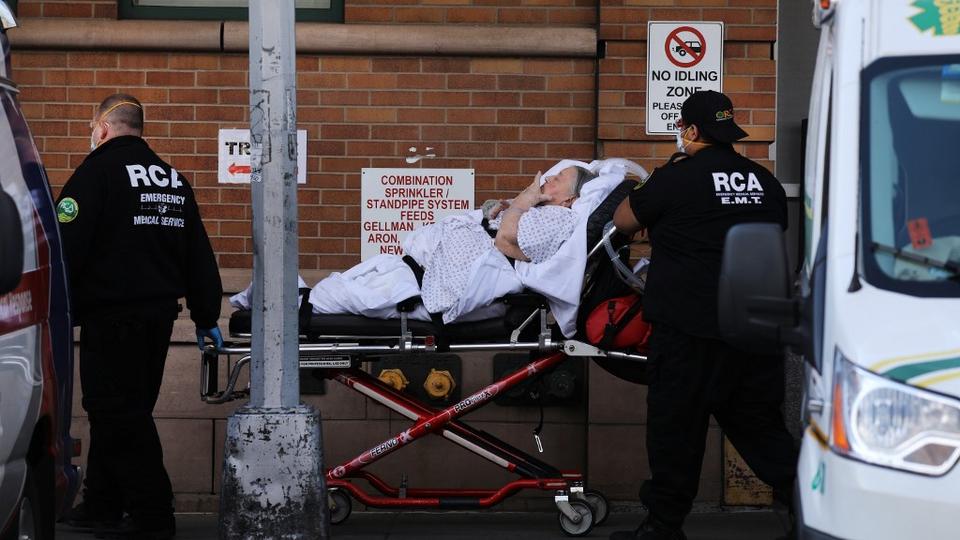00:45

The World Health Organization (WHO) said on Thursday it was setting up an independent panel to review its handling of the COVID-19 pandemic and the response by governments.
"The magnitude of this pandemic, which has touched virtually everyone in the world, clearly deserves a commensurate evaluation, an honest evaluation," WHO Director-General Dr Tedros Adhanom Ghebreyesus told a virtual meeting with diplomats.
The independent panel will provide an interim report to an annual meeting of health ministers in November and present a "substantive report" next May, according to WHO.
Science-based cooperation crucial
On July 9, Chinese Foreign Ministry spokesperson Zhao Lijian said at a daily briefing that after consultation between the two sides, the Chinese government has agreed that the WHO will send experts to Beijing to exchange ideas with Chinese scientists and medical experts on science-based cooperation to trace the origin of the coronavirus.
Zhao added that experts from both sides will develop the scope and terms of reference for a WHO-led international mission.
The WHO and China have maintained communication and cooperation since the start of the epidemic. It is also the view of the WHO that it is an ongoing process probably concerning many countries and localities, and WHO will conduct similar trips to other countries and regions in light of the actual need.
Identifying the origin of emerging viral disease has proven complex in past epidemics in different countries. A well-planned series of scientific researches will advance the understanding of animal reservoirs and the route of transmission to humans. The process is an evolving endeavor that may lead to further international scientific research and collaboration globally, Zhao said.

The Chinese mainland has a total of 83,581 COVID-19 cases as 9:25 a.m. of July 10, 2020, with 112 asymptomatic patients currently under medical observation. /VCG
The Chinese mainland has a total of 83,581 COVID-19 cases as 9:25 a.m. of July 10, 2020, with 112 asymptomatic patients currently under medical observation. /VCG
New Zealand's former prime minister Helen Clark warned on Friday that if the world remains "flat-footed" in its response to pandemics, it faces future economic, social and political crisis, after she was appointed by the WHO to lead a review of the global response to the COVID-19 pandemic. Both Clark and former Liberian President Ellen Johnson Sirleaf have agreed to head the panel.
Clark said to local media TVNZ on Friday this was the sixth time in 17 years that the WHO has declared a public health emergency.
She said there would be a lot of consultation about appointing panel members in order to make the whole mechanism effective. She will be working from her home in Auckland for the foreseeable future while delivering the project.
No politics involved
The WHO issued a statement saying the review was not linked to the United States and that WHO's 194 member countries had asked in May for an evaluation of the global response.

The U.S. coronavirus death toll climbs to 133,209 and the total confirmed cases exceed 3.1 million. /AFP
The U.S. coronavirus death toll climbs to 133,209 and the total confirmed cases exceed 3.1 million. /AFP
U.S. President Donald Trump has accused the WHO of being too close to China and not doing enough to question Beijing's response at the start of the outbreak. Tedros has dismissed the suggestions and said his agency kept the world informed.
The United States on Tuesday officially submitted its notification of withdrawal from the World Health Organization (WHO) to the United Nations secretary-general, a move widely criticized by public health experts.
Since the pandemic, Trump and his administration repeatedly assailed the WHO for months and threatened to cut ties with the organization. Trump also announced in mid-April that his administration would halt U.S. funding to the WHO.
As global COVID-19 infections top 12 million, with a vaccine still not in sight, Washington's decision was "disastrous" for national interests and the departure would weaken American influence on international health diplomacy, Lawrence O. Gostin, director of the O'Neill Institute for National and Global Health Law at Georgetown University, said in a statement.
Joe Biden, the presumptive Democratic presidential nominee, said if he beats Trump in the upcoming presidential race, he would rejoin the WHO on the first day of his presidency and "restore leadership on the global stage."
(With input from agencies)